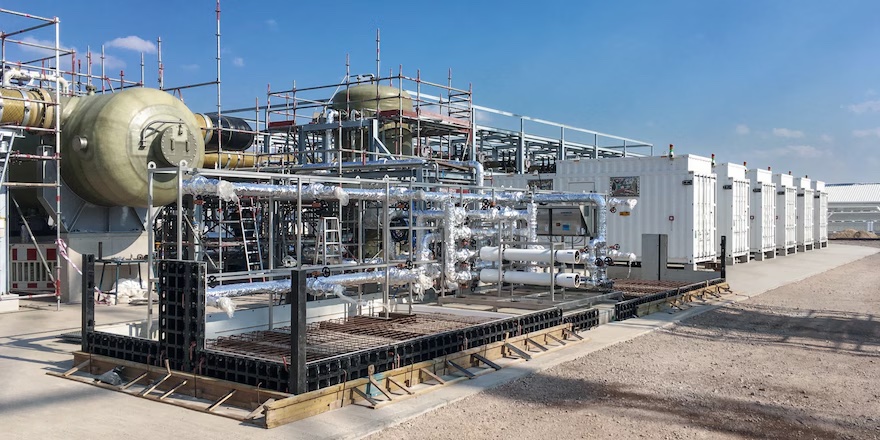Linde’s White Martins subsidiary has revealed plans to build, own, and operate a second electrolyzer to produce green hydrogen for the southeastern region of Brazil. The German industrial gas company said it will set up a 5 MW pressurized alkaline electrolyzer plant next to its current air separation facility in Jacareí, São Paulo. The new plant will be powered by renewable energy from local solar and wind power projects and it expected start up in 2025. In 2o22, White Martins became the first company to produce green hydrogen on an industrial scale with an international certification in South America at its plant in Pernambuco.
Sunfire has started conducting a FEED study for a 500 MW hydrogen project, with operations scheduled for 2028. Solar and wind infrastructure will power the central 500 MW pressurized alkaline electrolyzer. “The renewable hydrogen produced will support various applications, including refinery operations and ammonia production, contributing to industrial sustainability efforts,” said the German producer of pressurized alkaline and solid oxide (SOEC) electrolyzers.
AVL said it is partnering with Red Bull Advanced Technologies to develop ultra-high-power density fuel cell technology. “The lightweight solutions are expected to be two-thirds lighter than conventional fuel cell systems,” said AVL. The two sides noted that the solutions will mainly target the aerospace and future motorsport series sectors.
Popular content
CSX has unveiled its first hydrogen-powered locomotive, converting it from an existing diesel locomotive using a hydrogen conversion kit developed by Canadian Pacific Kansas City (CPKC). “Converting an existing unit into a next-generation locomotive further extends the useful life of the asset,” said the US transport company. “The conversion team reused several components, including the frame, cab, traction motors, and trucks.”
The Port of Amsterdam has signed two new agreements to develop a green hydrogen corridor between Amsterdam and the port of Bilbao, Spain. The first agreement involves a joint study agreement (JSA) between Petronor, EnBW, GasLog, and the Port of Amsterdam. Under the JSA, the partners will jointly evaluate the technical feasibility and commercial viability of a liquid hydrogen corridor. The second agreement involves an agreement between Petronor/Repsol, KLM and the Port of Amsterdam. “This cooperation focuses on exploring the possibilities for the production of SAF (synthetic aviation fuel) and e-SAF (hydrogen-based synthetic aviation fuel) in Bilbao, with Repsol as the producer and KLM as the potential offtaker,” said the Port of Amsterdam.
This content is protected by copyright and may not be reused. If you want to cooperate with us and would like to reuse some of our content, please contact: editors@pv-magazine.com.


By submitting this form you agree to pv magazine using your data for the purposes of publishing your comment.
Your personal data will only be disclosed or otherwise transmitted to third parties for the purposes of spam filtering or if this is necessary for technical maintenance of the website. Any other transfer to third parties will not take place unless this is justified on the basis of applicable data protection regulations or if pv magazine is legally obliged to do so.
You may revoke this consent at any time with effect for the future, in which case your personal data will be deleted immediately. Otherwise, your data will be deleted if pv magazine has processed your request or the purpose of data storage is fulfilled.
Further information on data privacy can be found in our Data Protection Policy.